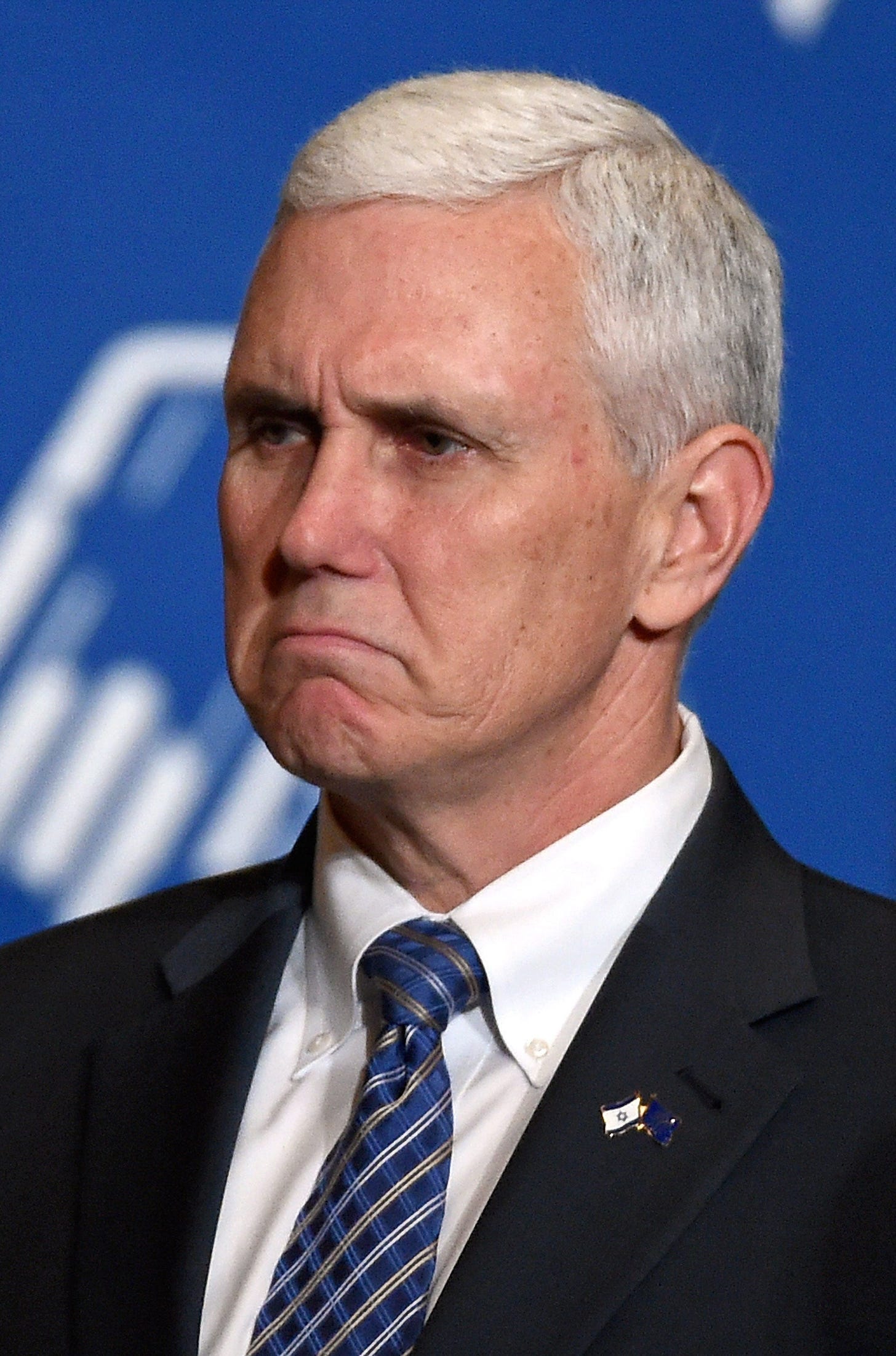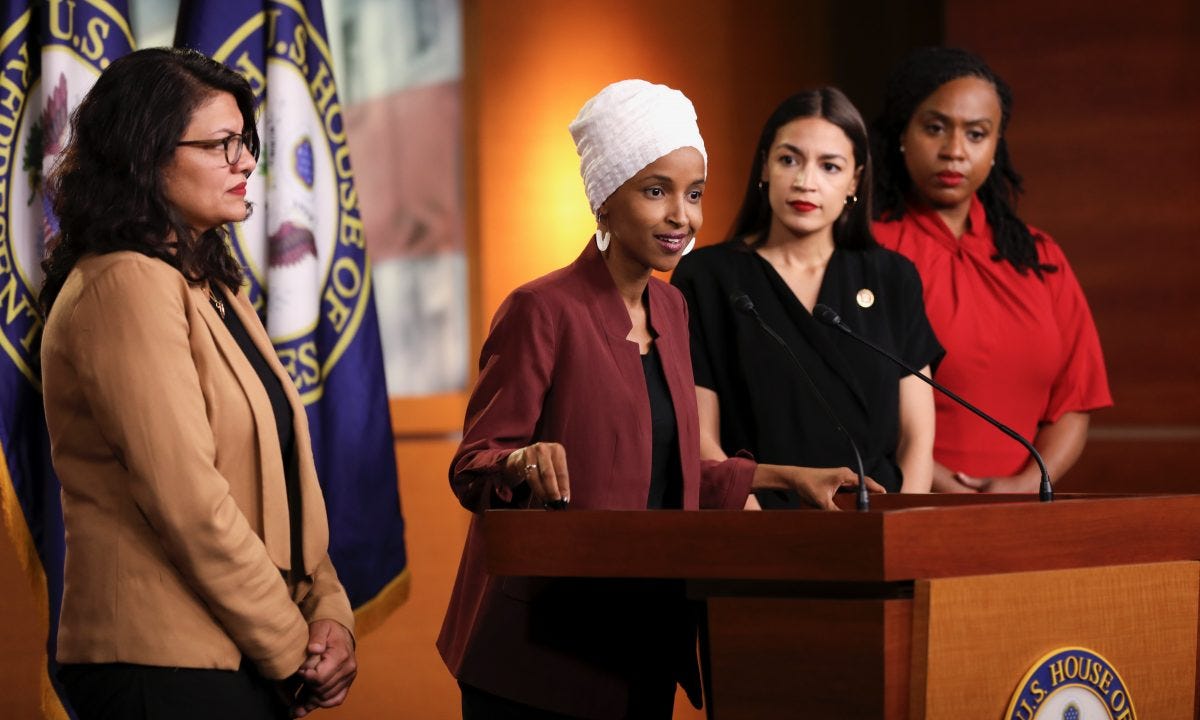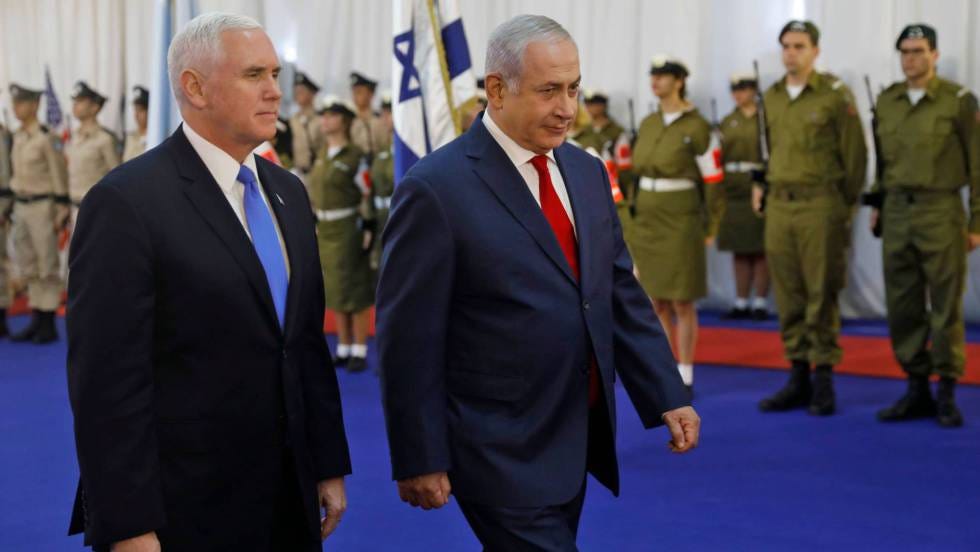Mike Pence's Vitriolic Assault on Congresswomen Backfires Amid Growing Criticism of Unwavering Israel Support
Will the American people align with Pence's singular focus on Israel or will they demand a leader who prioritizes the pressing needs of the USA
In a striking display of divisiveness and an apparent focus on international affairs over domestic concerns, former Vice President Mike Pence finds himself embroiled in controversy once again. As he vies for the presidency of the United States of America, his recent attack on progressive congresswomen Rep. Ilhan Omar and Rep. Rashida Tlaib for their decision to boycott remarks by Israeli President Isaac Herzog during a joint meeting of Congress has raised eyebrows and drawn widespread criticism.
Led by Representative Ilhan Omar, who was the first to announce her boycott of the speech, the list now includes Cori Bush, Alexandria Ocasio-Cortez, Jamaal Bowman, and Rashida Tlaib.
The boycott of the Israeli President's address is rooted in the strong opposition to Israel's Apartheid regime's oppressive occupation policies toward the Palestinian people.
A recent finding from a report by the UN Special Rapporteur, Michael Lynk, cited that the situation in the occupied Palestinian territories is described as "apartheid," echoing the sentiments of various Palestinian and international human rights organizations.
Amnesty International's report titled “Israel’s Apartheid against Palestinians: Cruel System of Domination and Crime against Humanity” (February 2022), consisting of 280 pages, as well as the 213 pages report from Human Rights Watch called “A Threshold Crossed” (April 2021), presented compelling cases that Israel's treatment of Palestinians constitutes apartheid, and thus crimes against humanity under international laws. This assessment aligns with the 1973 Apartheid Convention and the 1998 Rome statute of the international criminal court, which defines apartheid as systematic racial domination. The report scrutinizes Israel's military rule, segregation, and forced removals, painting a picture of Palestinians as an inferior racial group, facing discriminatory practices.
Israeli human rights organizations, such as B'Tselem and Yesh Din, have released significant reports corroborating the presence of apartheid practices within Israel's rule over the occupied Palestinian territories. Despite the weight of these assessments, certain Israel-apologist groups in the US have sought to delegitimize the discussion around apartheid, while pro-Israeli lobbies continue to oppose any such narrative.
Mike Pence's recent attack on Rep. Omar and Rep. Tlaib for their boycott stance seems to overlook the broader context of the UN report's findings and others in the human rights circle. Critics argue that his unwavering support for Israel, without addressing the grave human rights concerns raised by Amnesty International and others, demonstrates a lop-sided approach to international affairs over pressing domestic issues within the United States.
In a recent interview with Tucker Carlson, Pence revealed his primary concern with international affairs over domestic matters. When Carlson raised concerns about the deteriorating state of cities across the United States and the urgent domestic issues facing the nation, Pence deflected these concerns and expressed a singular focus on international interests, particularly Ukraine's lack of tanks.
This instance further highlights Pence's apparent lack of a comprehensive domestic agenda and raises questions about his prioritization of international affairs, especially in relation to Israel, over pressing issues within his own country. Critics argue that this approach is driven by fundamentalist and extreme religious reasons, which they claim may be employed to garner votes and funding for his 2024 presidential campaign.
As the presidential campaign gains momentum, the electorate faces a critical decision, weighing the actions and priorities of potential candidates. Mike Pence's approach to international and domestic affairs, amidst the backdrop of UN-backed apartheid accusations against Israel, may significantly impact public perception and shape the future direction of American politics.
As the nation watches closely, evaluating the language and actions of potential presidential candidates, the forthcoming months promise to be a critical turning point in American politics, with the weight of these decisions shaping the nation's future trajectory.
The question remains: Will the American people align with Pence's singular focus on Israel, knowing that it is an apartheid regime and an occupier, or will they demand a leader who prioritizes the pressing needs of the United States above all else?








